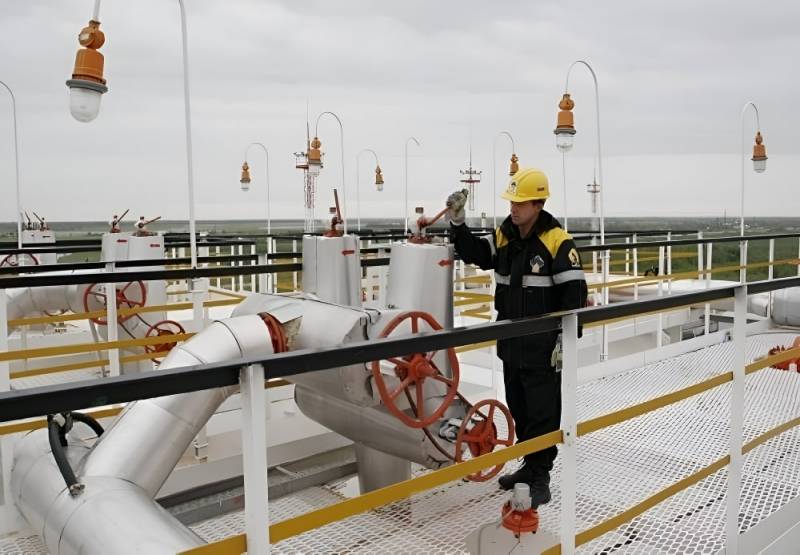Vostochny petrochemical plant: gasoline "complex" of the Far East
The very first project for the construction of an oil refinery near Nakhodka was approved during the Soviet Union, prevented its implementation economic aftermath of the 1973 oil crisis. It was decided to return to the construction of this enterprise in the Far East at the beginning of the XNUMXst century. In the current geopolitical situation, the commissioning of a gasoline and diesel plant in the Asian part of the Russian Federation is becoming especially relevant.
If we do not take into account the Soviet project, which appeared back in the seventies of the XX century, then the first modern mention of the possibility of building an oil refinery in the Far East can be found in the statement of Sergei Bogdanchikov, which he made in 2007, being president at that time " Rosneft. Already in 2009, the first work started in the Vostok Bay area. It was supposed to complete all work on the implementation of the first stage of the project in 2013, the second - in 2017. The capacity of the new refinery was to be 20 million tons. However, already in 2010, Rostekhnadzor recognized the new enterprise as not complying with the environmental legislation existing in the Russian Federation, so the work that had begun was promptly curtailed.
In 2010, the plans were adjusted, it was planned to build a petrochemical complex with a total capacity of 10 million tons, and it was supposed to be located in Nakhodka Bay. Vladimir Sugak, director of the Rosneft representative office in Primorsky Krai, then noted that the new complex would cover the needs of the countries of the Asia-Pacific region in products of deep oil refining. The revised project was to be implemented in three phases:
The first stage included the creation of production facilities for the processing of mixed naphtha and liquefied hydrocarbon gases from Rosneft enterprises in Angarsk, Achinsk and Komsomolsk-on-Amur (about 3,5 million tons of raw materials per year);
The second stage, the implementation of which was to be completed by 2018, involved the processing of 5 million tons of oil from the East Siberia-Pacific Ocean pipeline, which was completed in 2012, with the production of gasoline, solar oil and kerosene;
At the third stage, the complex will start processing 1,5 million tons of gas condensate from the Sakhalin-3 project (a promising oil and gas project, the estimated recoverable resources of which exceed 700 million tons of oil and 1,3 trillion cubic meters of natural gas).
It should be noted that the estimated cost of this project was more than $5 billion. The total area is 1680 hectares, which should have housed the enterprise itself, a sea terminal, a reservoir and other facilities.
It should also be clarified that the construction of the petrochemical complex almost immediately ran into various problems. So, experts found out that the plants located close to the VNKhK site (Khabarovsk Oil Refinery and Komsomolsky Oil Refinery) will be able to provide the new enterprise with about 1,3-1,5 million tons of naphtha. Another 1 million tons of naphtha can be provided by the Angarsk and Achinsk refineries. The rest of the raw materials will have to be imported from more distant refineries, which will have an extremely negative impact on the future competitiveness of this project. In addition, environmentalists were also unhappy, it was assumed that about 30% of the project cost should have been spent on solving environmental problems. According to the project, the new enterprise will emit 72 types of pollutants (including carcinogens) into the atmosphere.
In 2019, Rosneft issued a statement that the fate of the new complex directly depended on the stability and attractiveness of the fiscal regime and the support of state authorities in terms of building external and social infrastructure, noting that the company's latest initiatives were not supported at the federal level. Rosneft also added that an active dialogue with the executive authorities will continue. Its result should be a decision on the choice of an effective economic model for the project, after which the company will be ready to return to its implementation.
Despite the company's decision, the Ministry of Energy and the Ministry of Finance have repeatedly stated that it is necessary to implement this project and the discussion of economic benefits and incentives for it will continue. The commissioning of the new complex will provide the Far Eastern Federal District with fuel, currently only 50% of the required volume is produced in the region, the rest is imported from afar, which negatively affects the cost of gasoline for the end consumer.
In 2022, Rosneft and interested departments started updating the assessment of the Eastern Petrochemical Complex project. So, options for financing the external infrastructure of the All-Russian Petroleum Petrochemical Company from various sources should have been additionally considered. It is also necessary to pay attention to the fact that the construction base of the VNHK near the coast of Vostok Bay exists to this day, no one has dismantled it or conserved it.
Summing up, I would like to emphasize that the implementation of this project should have a positive impact on the domestic economy. Thus, Russian petrochemical products are in great demand in Asian countries, and taking into account the changed geopolitical situation, the new export direction has become the most relevant for the Russian Federation. With a functioning petrochemical complex, the potential profit could be approximately $5 billion a year, not counting the profit from the sale of petroleum products. In addition, another significant advantage will be the development of Primorsky Krai. According to various estimates, the gross regional product (GRP) of the region may increase by 1,5 times.
Despite this, the assumption that the appearance of such an object can affect fuel pricing in the Far East looks rather doubtful, because many factors are involved in this process, and solving just one of the problems will not be able to radically change the situation.

Information